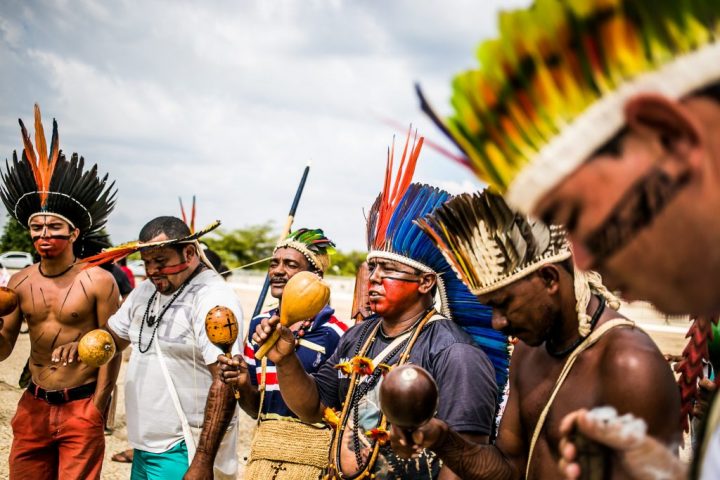A motion had been filed by an indigenous group and political parties
By Felipe Pontes
Justice Luís Roberto Barroso, of Brazil’s Supreme Court ruled that the federal government must adopt a set of measures of curb the spread of, and the deaths from, COVID-19 among the indigenous population.
Barroso thus granted a motion filed by indigenous organization Articulação dos Povos Indígenas do Brasil (Apib) and political parties PSB, PSOL, PCdoB, PT, Rede, and PDT, denouncing non-compliance with a fundamental precept, in which they argue for the adoption of more government measures to combat the dissemination of the novel coronavirus (COVID-19) among indigenous people.
The justice’s decision, unveiled on Wednesday (Jul. 8), was made even after the Attorney-General’s Office sent the Supreme Court a list with the measures taken by the government regarding indigenous groups, based on data from the Health and Defense Ministries, in addition to other agencies.
Barroso acknowledged the work of the Armed Forces and the Ministry of Health, for instance, in the distribution of basic food supplies, provisions, and health care materials to a number of indigenous communities, among other initiatives. The justice, however, understood it was necessary to rule that the government adopt additional measures, which, despite being mandated, are allegedly not being implemented.
“The indigenous people are especially vulnerable to infectious diseases, for which they show little immunity and a mortality rate higher than the national average. There is evidence of an accelerated expansion of COVID-19 among its members and the allegation that government efforts to curb its spread are not sufficient,” Barroso argues in his ruling.
Measures
Among the measures determined by Barroso is the inclusion of sanitary barriers for the protection of isolated indigenous people, who choose not to be in touch with the world outside—and also of those who recently got into contact with the rest of society.
“In the current pandemic situation, indigenous groups in isolation and those who had recent contact are the most exposed to the risks of contagion and extinction. This is brought about by the conditions of immunological as well as sociocultural vulnerability,” wrote the justice, who also mentioned UN guidelines on the adoption of isolation measures for traditional groups.
Barroso further stipulated the creation of a Situation Room with the participation of members of the government, Apib, the Prosecutor-General’s Office, and the Federal Government’s Public Defender’s Office. The appointment of members should be made in three days, the justice said, and their first meeting held in three days after the appointments.
Regarding the sanitary measures, Barroso set a ten-day deadline starting from the first Situation Room meeting for an installation to be presented.
Justice Barroso also mandated that the government announce a plan, in 30 days, to tackle COVID-19 for indigenous Brazilians, to be created with the help of indigenous communities and the National Human Rights Council. This plan must include efforts to control the entry of intruders into indigenous territories.
Lastly, Barroso ordered all indigenous people—including those living in urban areas—to be covered by the so-called Indigenous Health Care Subsystem, administered by the Special Indigenous Health Care Secretariat, which had limited assistance to the indigenous living in demarcated land.
AGU
Among other arguments, the Attorney-General’s Office (AGU, in the original Portuguese acronym) pointed out that the material and human resources to combat the pandemic are limited, adding that the Executive is more institutionally and technically capable of ascertaining how to best make use of such resources. “As a result, the interference of the Judiciary might disorganize current policies and make an impact contrary to what is desired for the protection of indigenous groups,” AGU declared.
Barroso said his decision abides by the principles of precaution and prevention, which must be observed by the Judiciary when rights are said to have been violated. “In this connection, this rapporteur will seek as much as possible to serve as a facilitator of decisions and measures that ideally should involve dialog with the authorities as well as the indigenous peoples.”
Translation: Fabrício Ferreira – Edition: Fernando Fraga










